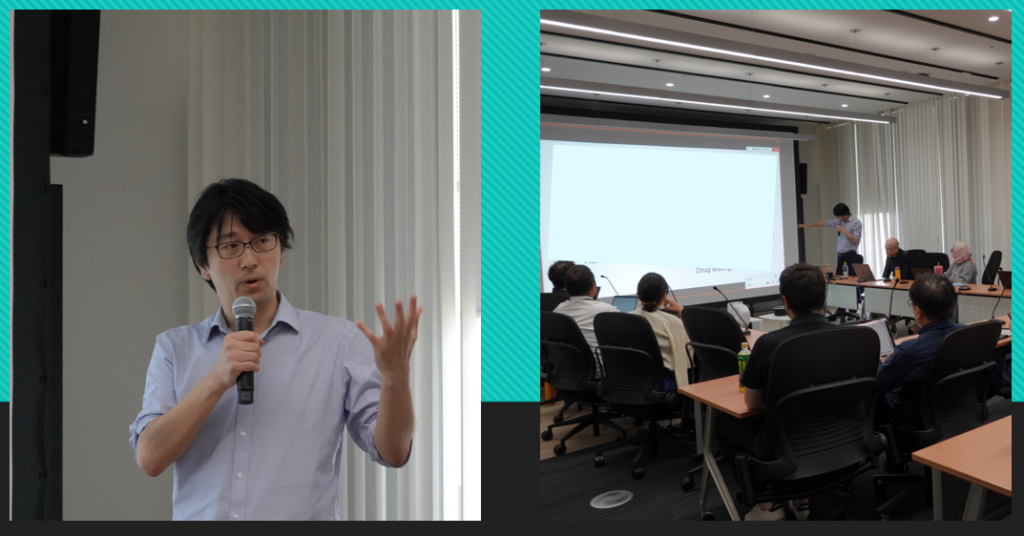【KAIWA】 Lecture by an External Expert Held at the Wako Headquarters
Share
September 4, 2025
We are pleased to report that special lecture event “KAIWA”, inviting external experts to our Wako office, was held for the purpose of acquiring diverse perspectives and knowledge on new fields.

Guest Speaker:
Name: Yoshiho Ikeuchi, Ph.D.
Affiliation: Professor, Biomolecular and Cellular Engineering Lab / Institute of Industrial Science, The University of Tokyo
Yoshiho Ikeuchi is a researcher in IIS, The University of Tokyo. He is also affiliated with Institute for AI and Beyond, and Department of Chemistry and Biotechnology, School of Engineering in the University. He received PhD degree in 2007 at Department of Chemistry and Biotechnology in The University of Tokyo. He did his post-doctoral neuroscience research at Harvard Medical School from 2007 to 2013, and at Washington University in St. Louis from 2013 to 2014. He was appointed as Lecturer in 2014, and then Associate Professor in 2018 at Institute of Industrial Science, The University of Tokyo. His goal of research is to construct nervous tissues from human multipotent stem cells (iPS cells) and to functionalize them to better understand the mechanisms of the brain. The group develops a technology to connect neural organoids via an axon bundle to model neuronal circuits, and to analyze network activity of the neural tissues using multielectrode arrays. The groups also use the tissues to analyze local and activity-dependent protein synthesis regulations in the neurons.
Title of the talk:
"Unleashing the potential of brain organoids with connection."
Abstract:
Neural organoids recapitulate aspects of brain development but lack macroscopic circuitry, a key feature of brain function. To model inter-regional interactions, we developed a method to connect brain organoids via guided axonal bundles and cultured them on high-density multielectrode arrays. Compared to single organoids, connected organoids exhibit more complex and synchronized activity, and optogenetic stimulation of axon bundles induced short-term plasticity. Repetitive stimulation with distinct spatiotemporal patterns refine network dynamics, enabling stimulus-specific responses revealed by machine learning analyses. I will discuss importance of network connectivity which can enhances organoid functionality, unleashing the potential of organoids for studying neural circuit mechanisms and utilizing them for applications.
In this lecture, Prof. Ikeuchi presented how connecting neural organoids via axonal bundles enables complex and synchronized activity as well as stimulus-specific responses, highlighting new possibilities for neural circuit research and its applications.
